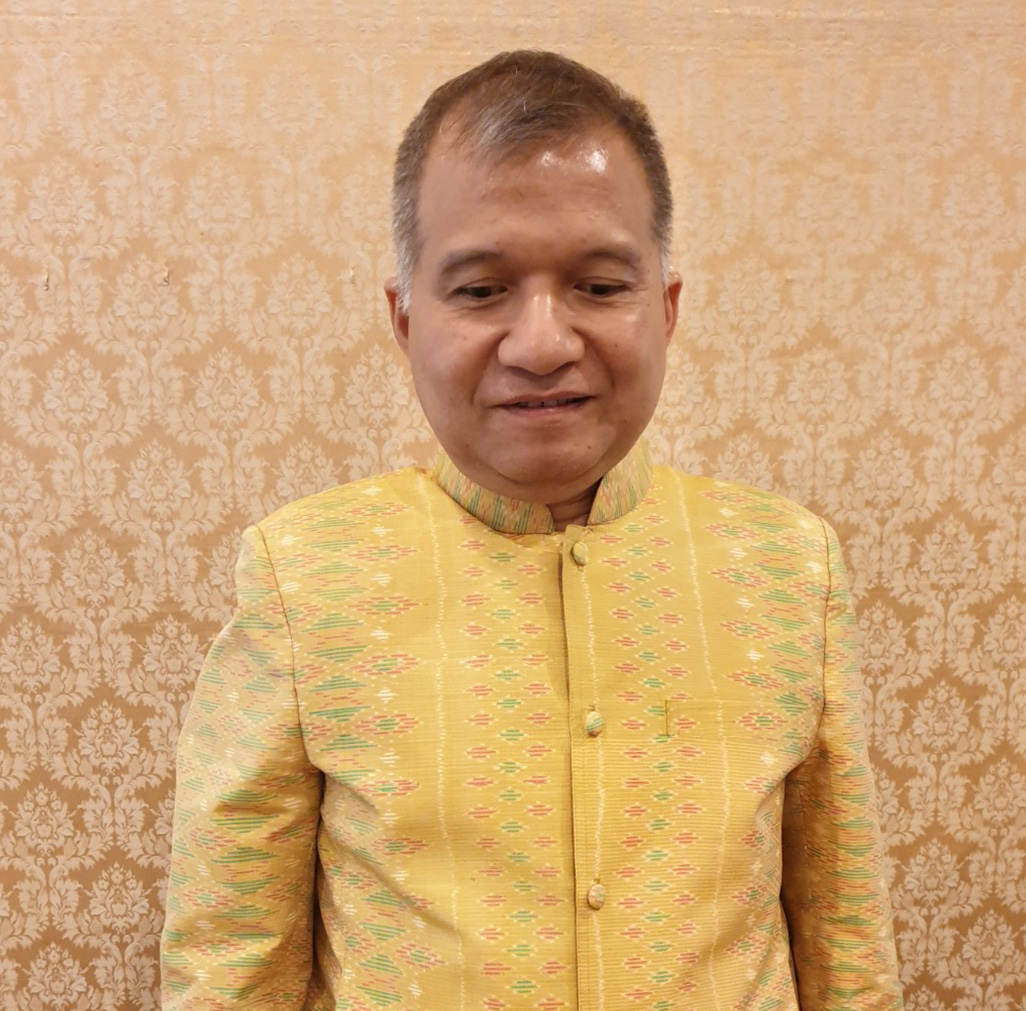Keynote Speakers

Mr. Monthian Buntan
Member of the Senate
Royal Thai Government and former United Nations Committee on the Rights of Persons with Disabilities
Speaker Profile:
Mr. Monthian Buntan served as Member of the Senate, Royal Thai Parliament since 2008 to 2014, followed by five years of member of the National Legislative Assembly (2014-2019 and reappointed to serve in the Senate again after general election in 2019-present. He served for two consecutive terms as Member of the UN Committee on the Rights of Persons with Disabilities from 2013-2020. Being blind since birth. Senator Monthian earned his Master’s degree from the University of Minnesota. After serving as a university lecturer for eight years, he left his stable teaching career to become a full time social activist in 2002. He has served in a number of positions within the organized blind/disability movement in Thailand, such as president of Thailand Association of the Blind for 8 years and two years as president of Disabilities Thailand (national umbrella organization of organizations of and for persons with disabilities in Thailand). His role in the World Blind Union (WBU) began officially in 1996 as one of the blind youth committee members before he was elected to serve as a WBU executive committee member in 2000 until 2016 and now holding its honorary life membership status.
Mr. Buntan is proud to be a part of several major contributions: the World Summit on Information Society (WSIS) from which the first disability-inclusive policy documents in the mainstream society at the international level were created, the United Nations Convention on the Rights of Persons with Disabilities (UNCRPD), which is the first thematic international human rights law for persons with disabilities and the first international human rights treaty of the twenty-first century, and most recently, the Third World Conference on Disaster Risk Reduction (Sendai Conference) which was recognized as one of the most accessible and most disability-inclusive conference outside disability field. Mr. Buntan strives to achieve “Digital Inclusion” through making knowledge, information and communication technologies and services inclusive of and accessible to all, including persons with disabilities.
Topic: Achieving Accessibility for All through Public Procurement Law and Policy and Effective National Enforcement Mechanism
Abstract
Persons with disabilities, who comprise an estimated 16 per cent of the global population, are one of the largest minority groups in the world. In Asia and the Pacific, this translates to more than an estimated 750 million people, including those with physical disabilities, those who are blind or experience low vision, Deaf, hard of hearing, and those with learning disabilities, cognitive/developmental disabilities, psychosocial disabilities, deafblind, and those with multiple disabilities. Persons with disabilities face numerous barriers that restrict their full and effective participation in society on an equal basis with others and are among those at highest risk of being left behind in the development process. This risk is particularly pertinent given rising inequality across the world, which has a disproportionate impact on persons with disabilities. For instance, the increase of income inequality puts persons with disabilities – who already are less likely to be employed compared with their peers without disabilities – in a particularly vulnerable position. Furthermore, the rising inequality with regard to access to basic services such as education opportunities often results in persons with disabilities falling behind, as evidenced by their relatively low rates of completing secondary education, gaining full time employment and securing a decent income compared to those without disabilities. The inadequacy and lack of accessible built environments, accessible information and communication, including information and communications technology (ICT), and accessible services are fundamental barriers that widen this inequality. ‘Accessibility’, in simple terms, is the breaking down of the barriers across these sectors that prevent persons with disabilities – and the broader population – from participating in society on an equal basis with others.


